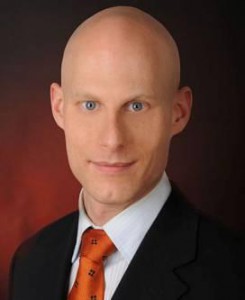Dr. Oliver Arendt joined nova-Institute in 2017, working in the Economy and Policy department. With his background in natural and environmental sciences, Oliver Arendt will support nova-Institute in the research of markets and acceptance of bio-based chemicals and materials as well as techno-economic evaluation, strategy development and policy.
Tasks at nova-Institute
 Oliver is involved in various European projects on bio-based economy. For instance, he works on the RoadToBio project (Horizon2020), which aims to create a roadmap for the chemical industry that outlines possibilities to increase the share of bio-based products in organic chemistry from today 12% to 30% by 2030. Oliver will provide an insight on existing hurdles and barriers that bio-based products are facing today and will work on strategies how to overcome them.
Oliver is involved in various European projects on bio-based economy. For instance, he works on the RoadToBio project (Horizon2020), which aims to create a roadmap for the chemical industry that outlines possibilities to increase the share of bio-based products in organic chemistry from today 12% to 30% by 2030. Oliver will provide an insight on existing hurdles and barriers that bio-based products are facing today and will work on strategies how to overcome them.
Both for RoadToBio and for another recent BBI project (Star4BBI) that deals with barriers and hurdles for the bio-based economy, Oliver is internal project manager.
In the Horizon 2020 project SuperBio, he will help to develop new, innovative, cross-border and cross-sectorial industrial value chains in the Bio-Based Economy. In the Horizon 2020 project MAGIC he will work on techno-economic evaluation.
Background and expertise
Oliver Arendt studied Biology (Dipl. biol.) at Göttingen University. After finishing his diploma thesis at the Max-Planck-Institute for Neurosciences in Frankfurt (Main), he moved to the University of Leipzig where he received his Dr. rer. nat (Ph.D.) in 2009. While working as postdoctoral fellow, he pursued a degree in environmental sciences at the Open University Hagen. After his post-doctoral position he worked in an SME in the R&D department and later joined the German Biomass Research Center in Leipzig where he worked as a researcher on scenarios and strategies on the future use of biomass (Project Milestones 2030).
Among his interests are the “de-fossilisation” of everyday life and the establishment of a zero-negative-impact future.
Selected Publications
M. Millinger, J. Ponitka, O. Arendt, D. Thrän, Competitiveness of advanced and conventional biofuels (2017): Results from least-cost modelling of biofuel competition in Germany, Energy Policy, Volume 107, 2017, Pages 394-402, ISSN 0301-4215, http://dx.doi.org/10.1016/j.enpol.2017.05.013.
D. Thrän, O. Arendt, M. Banse, J. Braun, U. Fritsche, S. Gärtner, K. J. Hennenberg, K. Hünneke, M. Millinger, J. Ponitka, N. Rettenmaier, R. Schaldach, J. Schüngel, B. Wern and V. Wolf (2017): Strategy Elements for a Sustainable Bioenergy Policy Based on Scenarios and Systems Modeling: Germany as Example. Chem. Eng. Technol., 40: 211–226.
D. Thrän, R. Schaldach, M. Millinger, V. Wolf, O. Arendt, J. Ponitka, S. Gärtner, N. Rettenmaier, K. J. Hennenberg, J. Schüngel (2016): The MILESTONES modeling framework: An integrated analysis of national bioenergy strategies and their global environmental impacts, Environmental Modelling & Software, Volume 86, 2016, Pages 14-29, ISSN 1364-8152, http://dx.doi.org/10.1016/j.envsoft.2016.09.005.
Contact
Oliver Arendt
Phone: +49 (0)2233 481476
Email: oliver.arendt@nova-institut.de
Source
nova-Institut GmbH, 2017-07-27.
Supplier
Share
Renewable Carbon News – Daily Newsletter
Subscribe to our daily email newsletter – the world's leading newsletter on renewable materials and chemicals









